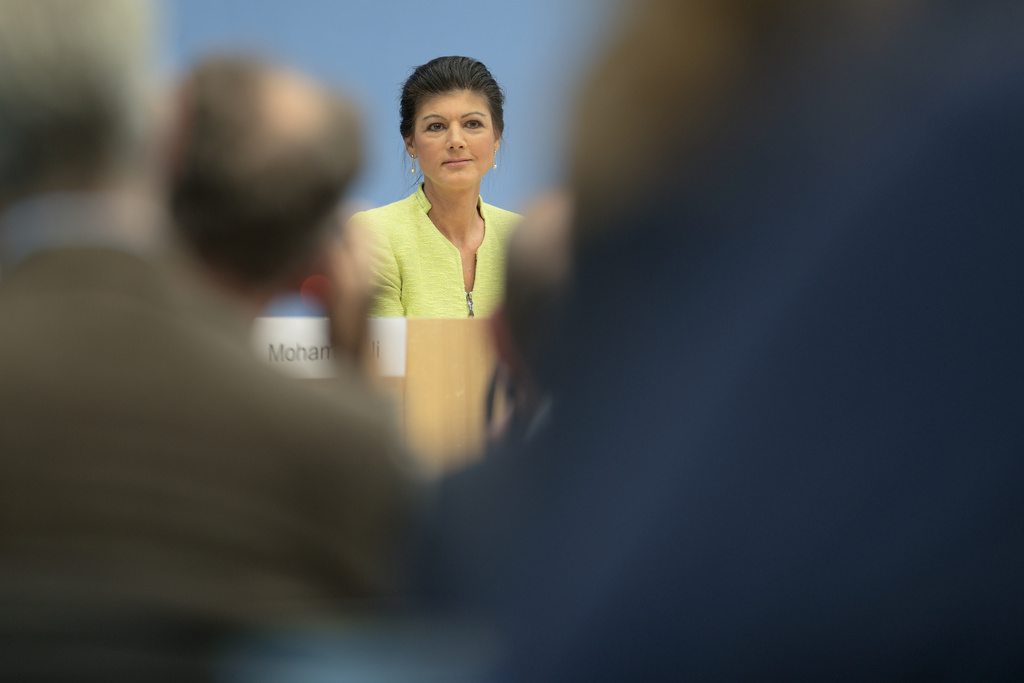In a recent poll for the German state of Saxony-Anhalt, the Alternative for Germany (AfD) has seen its leading position drop by four points, bumping it into second place, with most of that loss attributed to the new left-wing party, the Sahra Wagenknecht (BSW) alliance.
Pollsters had predicted that the BSW, known for its opposition to German arms for Russia and its left-wing positions mixed with “anti-woke” sentiment, would cut into AfD’s vote share. However, once the party was formally launched, it appeared to have a negligible effect on AfD’s polling results.
Now, in Saxony-Anhalt, BSW may be showing signs of strength at the expense of the AfD. Six months ago, an Insa poll showed AfD in first place at 33 percent, and the Christian Democrats (CDU) in second with 32 percent. In the latest poll, the CDU’s vote total is unchanged while the AfD dropped four points to 29 percent, putting it in second place.
The big change was the addition of the BSW, which polled 10 percent after it was added to the poll for the first time in the eastern German state.
“The Wagenknecht party is changing the political landscape,” Insa head Hermann Binkert told the Bild newspaper, which commissioned the poll: “The AfD and Linke (the left) in particular are losing votes as a result. This puts the CDU back in first place.”
BSW’s presence also cut into the Left Party, which Wagenknecht left to form her own party. The Left Party dropped from 9 percent to 5 percent.
While the AfD has taken a hit in the eastern state, the governing left-liberal coalition has far bigger problems to contend with than a slight dip in the polls, with the three parties facing abysmal election results. The Social Democrats (SPD) are polling at 8 percent, while the Greens at 5 and the Free Democrats (FDP) at 4 both have reason to fear they might not even enter parliament. German elections require every party to obtain at least 5 percent before they can do so, which means all three parties face the risk of being kicked out entirely.
“No government can be formed without and against the CDU. The Left, the Greens, the FDP and to a certain extent the SPD must fear the 5 percent hurdle. In our potential analysis, all four parties are below 5 percent in terms of definite voters,” said Binkert.
While the BSW’s presence in the polls may chip into the AfD vote, polling has shown that the AfD has maintained its strong position in the east, either coming in first or second place in all states, with the BSW often failing to inflict the type of harm the left would like to see against the right-wing party. As the BSW’s pro-migration stance becomes more clear, it may also further erode support for the party, but other scenarios could also arise.
Nevertheless, the polling result shows that a CDU and AfD coalition government would be the only real stable option. The CDU would have incredible difficulty forming any other coalition government, as all its natural coalition partners face low vote totals or complete removal from the government. Many on the left, and even in the CDU, are calling for a complete ban on the AfD before the critical elections in the east, as the rival party is allegedly a “threat to democracy.” The more cynical take is that the parties are sensing a political crisis that could cut into their power and seek to eliminate a key rival through authoritarian means.






